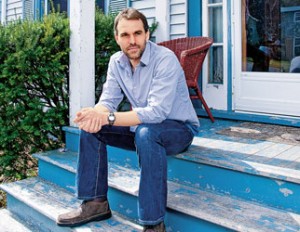The payoff: Realizing true value
Great dividends of a different kind flow from a sense of peace and limitless hot water
Advertisement
Great dividends of a different kind flow from a sense of peace and limitless hot water

Here’s an axiom to consider, a basic truth I bet politicians and municipal bureaucrats understand better than anyone else: Basic infrastructure costs a lot of money and it requires ugly work that’s hard to get done on time and on budget and it never, ever pulls in the votes. A ribbon-cutting ceremony at a sewage treatment plant simply isn’t as much fun as the one that takes place in front of the shiny new rec centre with its twinned ice rinks and its colourful water slide. And yet, the need for good infrastructure persists. Nobody cares about the mystery dollars that went into the pipes running beneath the street until the century-old water main ruptures and the toilet won’t flush and the real trouble arrives. Infrastructure is conspicuous only in failure, invisible right up to the moment it collapses. Then everybody notices.
My wife and I and our three kids live in an older house in Dartmouth, N.S. Like most families, most of our money is tied up in our home. We love this place—the only house our children have ever known—but it has its challenges. The wiring is a bit iffy and there’s seaweed insulation in the walls and the cast iron radiators run off the same heating coil as the domestic hot water. When we first moved in, it took months of fiddling with the faucets before we figured out how to coax a good shower out of the pipes. This kind of tap dancing was impossible to teach to visitors—“Remember: You can never run it full blast, but if you keep turning this one here back and forth every thirty seconds, you’ll get a consistent lukewarm trickle and everything will be fine.”
A lot of people left our bathroom shivering and cursing, but what could we do? Plumbing is expensive.
You see where I’m headed? Old pipes and old wires and old insulation: Nobody likes these things, especially when they don’t work. And nobody feels a giddy surge of excitement as they ‘save up’ for a replacement breaker panel. Not when the world seems overstuffed with tempting flat-screen TVs and granite countertops. But picture this for a second: a new furnace and some new insulation and new wiring. Then throw in a high-efficiency water tank and a guaranteed hot shower. Making our house work the way it’s supposed to ranks right at the top of my proudest financial achievements.
I know there’s no shrewd market sense or cagey investing on display here, but trust me: great dividends of a different kind flow from a sense of peace and limitless hot water.
Now, under normal conditions, there isn’t usually a lot of extra money lying around this house and our bank balances tend towards the negative integers. This past year, however, I published a book of short stories and, by some miracle, that book made the short list for the Giller prize and sold pretty well before Christmas. The success of the book took us completely by surprise. I definitely wasn’t banking on making any money from the seven stories I’d been working on for more than 10 years, but it really did happen. I have an invitation to the Giller ball as proof, and a pile of newspaper clippings for my scrapbook.
The collection didn’t win the prize, but I got $5,000 for being named as a finalist and the book probably earned around the same amount in royalties for the first few months. This was magic money in our lives, like one of those forgotten twenties you find in last year’s winter coat, but on an exponential scale, and my wife and I had to make a plan for what do with it. We needed to pay down some lingering student debt and we wanted to buy a nice painting, but in the end, we agreed: “It’s got to be the furnace and that other stuff. When will we ever have a chance like this again?”
We made our calls and lined up the estimates and got it done. It cost a bundle and the house still looks exactly the same. Nobody from the outside would even notice the change, but we feel the difference and it’s almost crazy to think that a book of short stories is actually making the house warmer. The place was pretty drafty and cold while I was writing them so this feels like substantial progress.
We didn’t throw a party when our new furnace kicked in for the first time, but perhaps we should have.
It is always hard to love the basic things that we need most. Difficult to properly value or fully appreciate those wires and pipes and the currents they carry, the invisible networks of infrastructure that flow all round us and make the ease of this life possible. I can sense them right now, though, and I think maybe the feeling will last for two or three more days before everything is absorbed back into routine. I twist the tap. I click the thermostat. I hit the lights. And I think: thank you, thank you, thank you.
Author and teacher Alexander MacLeod lives in Dartmouth, N.S. His short story collection, Light Lifting, was shortlisted for the 2010 Scotiabank Giller prize.
Share this article Share on Facebook Share on Twitter Share on Linkedin Share on Reddit Share on Email